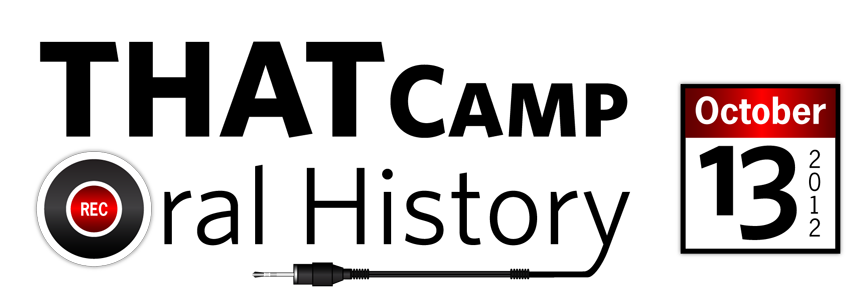I am fascinated with the problems associated with visualizing oral history, which I blogged about, and which is part of my contribution to the Oral History in the Digital Age project.
As I have mulled this problem, I have increasingly realized that the digital revolution presents a problem for oral historians that problematizes the oral history as the unit of analysis. Increasingly, we parse, divide, tag, and work with oral histories as a small collection of discreet pieces or clips. This surely is an appropriate way to work with oral history, but has just as surely altered how we think about oral history as a unit of analysis. This transformation has generated a host of new tools, such as Ohms at the University of Kentucky. It has also become the way that public historians are using oral history, as in Cleveland Historical.
I would like to consider examples of projects in both the archiving and exhibition of oral history and engage in a discussion of what this implies about professional practice in the digital age.

A session on this aspect of oral history should be very interesting. Breaking larger oral histories into smaller unit has many advantages: you can tag smaller units more accurately with geospatial data (I have not worked with Ohms, so I will be interested in what it can do), and you can leave out sections that might pose ethical issues such as privacy, and legal issues caused by libel and slander, which can occur in interviews. Thanks for the topic!
As I remarked in my session proposal post, this is an important discussion that flows naturally into ideas of essential information (metadata) about oral history in a digital milieu. We are smack in the middle of a project that is working around these issues!
I’m interested in this session as well. What are our responsibilities to the interviewees/subjects when we break apart their narrative – how much freedom can we allow ourselves before intention and meaning are too altered?
Many thanks!